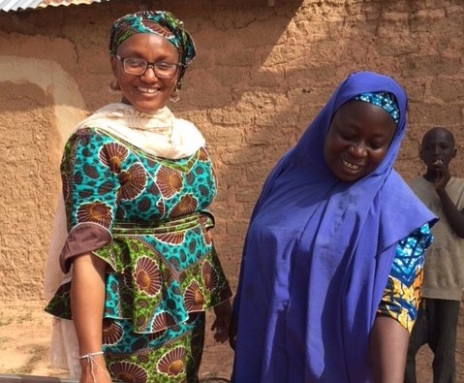The Challenge:
Forty three percent of Nigeria’s population does not have access to grid electricity, making Nigeria the country with the largest energy access deficit in the world. This lack of energy access places a tremendous strain on households and businesses, with economic losses stemming from an estimated electrification gap of $26.2 billion.
One challenge in solving Nigeria’s electricity access gap is a lack of production of renewable energy based tools and materials in African countries according to Sosai Renewable Energies Company CEO, Habiba Ali. “The United States has a lot of technologies that are renewable energy based, and in Africa we do not manufacture these things. As such, we will need these solutions to develop our communities and build our businesses.”
Our Solution & Impact:
Sosai Renewable Energies Company will conduct feasibility studies across 100 communities in three states in Nigeria to connect more than 200,000 women, farmers, and rural citizens to new solar-powered minigrids thanks to a grant from the U.S. Trade and Development Agency (USTDA) and support from Power Africa. These feasibility studies are critical to support Nigeria’s electrification efforts, particularly when searching for renewable energy solutions. In addition to driving clean energy solutions in Nigeria, the feasibility study will create business opportunities for U.S. equipment and services suppliers in Nigeria’s minigrid sector, while supporting up to 20 megawatts of new solar power in rural communities. Ali says she was able to secure this investment after receiving a grant from the U.S. African Development Foundation (USADF) in 2016. The USADF grant funded the installation of two ten-kilowatt solar minigrids, two solar dryers, and solar kiosks. As a result, Ali was able to attract additional funding to scale her business and expand the number of minigrid projects in Nigeria.
“This USTDA grant will support a huge step forward for Nigeria in meeting its rural electrification goals as well as kick-start life changing projects for communities, women, economic development and the agricultural sector. For Sosai, the benefit of the USTDA grant to our company is immense, positioning us for greater growth and greater possibilities in the future.”
Habiba Ali Sosai CEO




